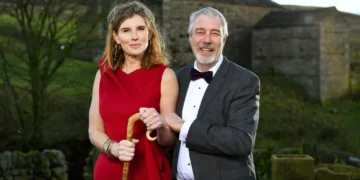In the rich tapestry of social reformers and unsung heroes, some names are whispered through the pages of history—known only to a few, yet leaving a legacy that touches many. One such name is Margaret Friar, a woman whose dedication to community welfare, education, and social equity quietly shaped the lives of many during the early 20th century.
Though not widely recognized in the mainstream historical narrative, Margaret Friar’s influence is found in the grassroots efforts that empowered communities, particularly women and children, in a time when such advocacy was both rare and radical.
Contents
Who Was Margaret Friar?
While comprehensive historical records of Margaret Friar are scarce, those who have encountered her work—through family histories, local archives, or oral tradition—speak of a woman who wore many hats: teacher, community organizer, mentor, and advocate. She lived during a time of intense societal change. The world was emerging from the shadow of the Victorian era, with women beginning to assert their voices in public and private spheres.
Born in the late 19th century, Margaret Friar grew up in a world where access to education, healthcare, and opportunity was deeply unequal. She came of age at a time when the suffragette movement was gaining traction, and the seeds of social reform were being sown across Europe and North America. Rather than step onto the loud stage of politics, Margaret chose the quieter, often overlooked path—working within communities to create real, tangible change.

Education as a Lifeline
One of the core values that defined Margaret Friar’s work was her belief in education as a tool of empowerment. Long before terms like “social justice” and “equity in education” became common parlance, she recognized the transformative power of learning—particularly for girls and women.
She spent decades working in local schools, often in impoverished areas, where she tailored lessons to fit the unique needs of her students. Margaret believed that education should not be a rigid, one-size-fits-all model but rather an adaptable and responsive system. She developed early literacy programs, introduced nature walks as learning experiences, and even brought storytelling and poetry into the classroom to help children connect emotionally with their education.
Former students, in rare surviving testimonies, recall her as a kind, firm, and deeply attentive teacher—someone who saw potential where others saw limitations. She often spent her own money to buy supplies or food for students who were struggling, and her home became a safe haven for those in need of mentoring or support.
Community First
Margaret Friar’s work extended far beyond the classroom. She was a firm believer in the strength of community, and much of her later work involved organizing local groups for mothers, widows, and factory workers. In the wake of World War I and later during the Great Depression, these groups became lifelines for families navigating loss, economic instability, and displacement.
Margaret organized food banks long before they became a common institution. She helped establish sewing circles that doubled as mutual support networks for women who were often juggling multiple jobs, childcare, and household duties. These circles weren’t just about making clothes—they were about making connections.
One particularly touching anecdote involves a Christmas meal in 1933 that Margaret arranged for dozens of local families. According to local accounts, she orchestrated donations, cooked food, and ensured that every child received a handmade toy or book. She did this not for recognition, but out of a deep sense of duty and compassion.
An Advocate for Women
Margaret Friar’s quiet feminism was not the kind found in marches or manifestos—it was found in action. At a time when many women had few options beyond marriage or domestic service, Margaret opened doors through education, skill-building, and encouragement. She often counseled young women to pursue their interests and push against societal expectations, even if only in small ways.
She once wrote in a letter to a friend, “A woman’s strength is not in how well she can conform, but in how gently she can lead others toward kindness and courage.”
It is this philosophy that made her a role model in her community. Young women turned to her not just for advice, but for hope. She offered pathways when there seemed to be none.
A Legacy in Fragments
Unlike more famous figures of her time, Margaret Friar did not leave behind a foundation, a building, or a political movement. Her legacy is more elusive, more intimate. It lives in the lives she touched—the students who became teachers, the mothers who found strength in shared struggle, the women who discovered their worth and voice.
Historians now advocate for the preservation of local stories like Margaret’s. In an age where history often favors the loudest voices or most documented figures, it is vital to remember those who worked quietly, persistently, and with great love.
Efforts are currently underway in some regions to uncover more about Margaret Friar’s life. Local historical societies are collecting oral histories, scanning old letters, and even examining school rosters and community meeting minutes in the hopes of piecing together her story.
Why Margaret Friar Matters Today
In today’s fast-paced world, where activism often plays out on global platforms and digital networks, the story of Margaret Friar reminds us of the power of local action. Not all heroes wear capes—or stand at podiums. Some sit beside a child struggling to read. Some organize warm meals for neighbors. Some write letters of encouragement. And in doing so, they change the world.
Margaret Friar’s life is a tribute to quiet, consistent compassion. Her example teaches us that lasting change often begins in the smallest acts: a kind word, a shared meal, an open door. Her legacy invites us to ask ourselves, What can I do for my community today?
As her story continues to unfold through historical rediscovery, perhaps we’ll find even more inspiration in the life of this unassuming trailblazer. Until then, let her name be remembered—not for the fame she never sought, but for the lives she uplifted simply by caring.































